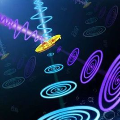We face up to the challenge of explainability in Multimodal Artificial Intelligence (MMAI). At the nexus of neuroscience-inspired and quantum computing, interpretable and transparent spin-geometrical neural architectures for early fusion of large-scale, heterogeneous, graph-structured data are envisioned, harnessing recent evidence for relativistic quantum neural coding of (co-)behavioral states in the self-organizing brain, under competitive, multidimensional dynamics. The designs draw on a self-dual classical description - via special Clifford-Lipschitz operations - of spinorial quantum states within registers of at most 16 qubits for efficient encoding of exponentially large neural structures. Formally 'trained', Lorentz neural architectures with precisely one lateral layer of exclusively inhibitory interneurons accounting for anti-modalities, as well as their co-architectures with intra-layer connections are highlighted. The approach accommodates the fusion of up to 16 time-invariant interconnected (anti-)modalities and the crystallization of latent multidimensional patterns. Comprehensive insights are expected to be gained through applications to Multimodal Big Data, under diverse real-world scenarios.
翻译:暂无翻译



